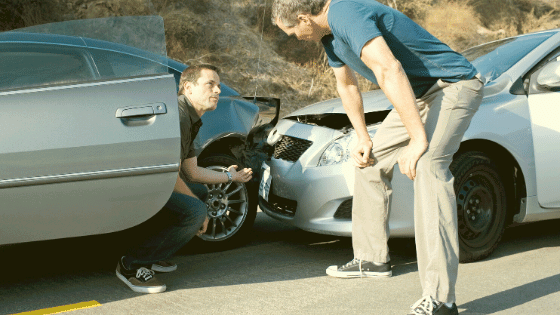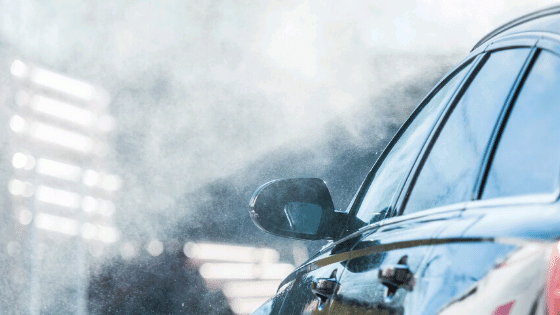- Our Mission: To provide the highest level of service and quality collision repair in an honest, ethical, and efficient manner. | Contact Us:
- 626-457-9114
- info@hiqualityautobody.com

How Much Time Do I Have to Repair My Car After an Accident?
September 25, 2019
How Car Accident Damage Can Help Us Determine Who’s at Fault
November 15, 2019- 1 Legal Consequences of Driving Uninsured in California
- 1.1 California’s Minimum Liability Coverages
- 2 Car Insurance Laws Vary By State
- 2.1 What is Tort Law?
- 3 States with Tort Law
- 4 No-Fault States
- 4.1 States that Have No-Fault Laws
- 5 What Happens If the Other Driver Is At Fault, But You Have No Insurance
- 6 What Happens If You’re At Fault and Uninsured?
Driving without insurance is against the law in 48 states, including California. Only Virginia and New Hampshire don’t have mandatory insurance laws.
Driving uninsured is a bad idea for obvious reasons. Regardless of how safe of a driver you think you are, driving is inherently risky.
If you get into an accident and the police arrive on the scene, they can give you a citation for driving without insurance. It doesn’t matter who was at fault. The law is clear on this. Where it gets more complicated is when an uninsured driver gets into an accident.
If you recently had an accident and were driving with no insurance, we will address some common topics of concern, including accidents where the other driver was at fault.
Legal Consequences of Driving Uninsured in California
California has some of the most lenient penalties for driving without insurance. For a first offense, you can receive a minimum fine of $100 plus additional penalty assessment fees. The total for a first offense can add up to just under $500. For subsequent offenses, you can expect to pay close to a thousand dollars when you add all the fees.
For some drivers, the risk may be worth it as they get to save money by avoiding insurance premiums. After all, paying $500 for a ticket is still less than the cost of yearly car insurance. But, once they get into an accident, especially one where they’re the at-fault driver, they realize the price of their gamble.
By driving uninsured, the risk you’re running is not so much in getting a ticket; it’s in causing a serious accident.
California’s Minimum Liability Coverages
California requires that vehicle owners submit proof of financial responsibility. There are 3 ways of showing proof of insurance.
- Liability insurance policy
- A $35,000 bond or deposit with the DMV
- A self-insurance certificate from the DMV
Most private car owners rely on the first option, which is by purchasing a liability insurance policy. The state’s minimum liability requirements are:
- $15,000/per person
- $30,000/per accident
- $5,000/property damage
Car Insurance Laws Vary By State
Laws differ by state and this affects how insurance companies handle the claims process. Some states apply tort law while the rest are no-fault states.
What is Tort Law?
Tort law s a broad category that refers to laws that are meant to compensate victims for their losses and deter perpetrators from committing the same offense again. They can apply to both civil and criminal law as well as intentional and unintentional acts.
Car accidents are usually unintentional, and most are handled as civil matters, unless there are other elements involved, such as driving under the influence.
Tort laws are designed to protect victims and give them the right to seek recovery for their damages, injuries, and any other losses they suffered. In a nutshell, tort law gives you the right to sue the other person.
States with Tort Law
Most states, including California, apply tort law. These states allow accident victims to claim damages against the responsible party. If you have liability insurance and someone sues you for their losses, your insurance is there to protect you and will pay on your behalf. If you’re uninsured (or even underinsured), you are still responsible for compensating the other person. This could mean paying out of pocket or having some of your assets seized. But before anyone can sue, an investigation has to prove the liability of the negligent driver.
No-Fault States
In a no-fault state, each party, regardless of fault, is responsible for their damages. These drivers must use their own insurance policies to repair their cars and pay for their medical bills. You cannot sue another person your losses or make a claim against their insurance policy.
However, there are exceptions. Some states have threshold amounts for medical bills in which a plaintiff can file a lawsuit against the responsible driver. Utah, for example, has a threshold of $3,000. Other states, like Hawaii and the District of Columbia, your medical bills must exceed your PIP (Personal Injury Protection Coverage), sometimes known as medical payments coverage.
States that Have No-Fault Laws
- Hawaii
- Kentucky
- Florida
- New York
- North Dakota
- New Jersey
- Minnesota
- Utah
- Pensylvania
- Michigan
- Kansas
- Puerto Rico
What Happens If the Other Driver Is At Fault, But You Have No Insurance
If you live in California or another state with tort-law, you have the right to seek damages from the other driver for property damage and medical costs. The other driver’s insurance can repair your car and provide you with a rental. California has a law that lets you choose the body shop of your choice. This law also applies to uninsured motorists. If the other driver is also uninsured, you can still take them to court and file suit for damages.
For medical bills, you can also seek reimbursement for reasonable costs. However, certain states may have limits on how much you can claim. For instance, you may be able to recover the costs of your medical bills but not for pain, suffering, and missed time from work.
What Happens If You’re At Fault and Uninsured?
If you’re uninsured and at fault, you are responsible for covering the costs of your damages and injuries. You are also responsible for the other driver’s property damage and medical bills.
Even if the other driver is uninsured, under the law, they can still file a lawsuit against you. If they do have insurance, they may also be able to pursue additional damages, like lost wages, emotional distress, and future medical costs. On top of all this, the DMV may impose penalties or suspend your license.
It’s never a good idea to drive uninsured. Not only are there legal consequences, but it’s a risk that’s too big to take. Make sure to keep valid insurance cards on you every time you drive and stay safe!
Have Questions or Wish to Schedule an Appointment?
Call Us:(626) 457-9114
or Send Us a Message


